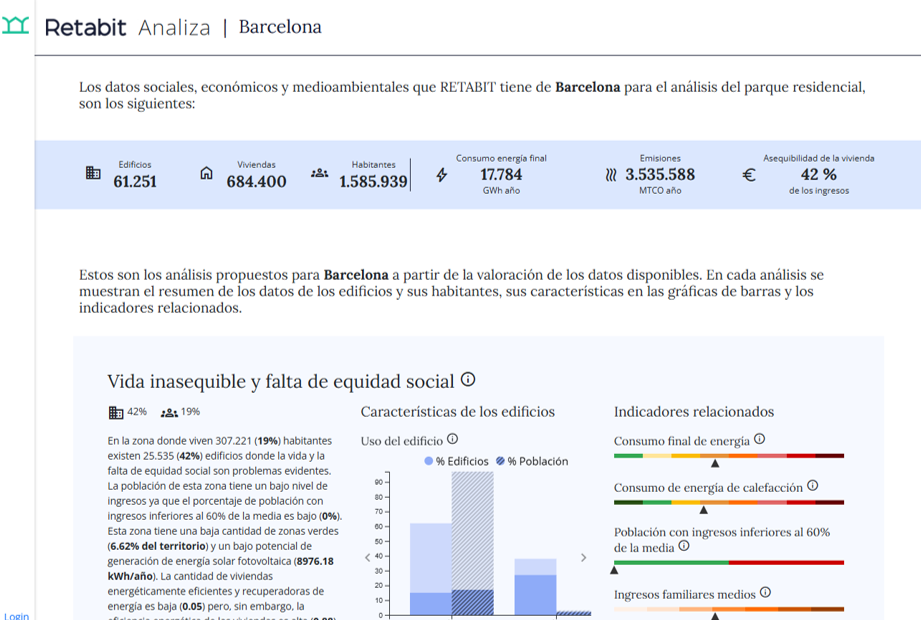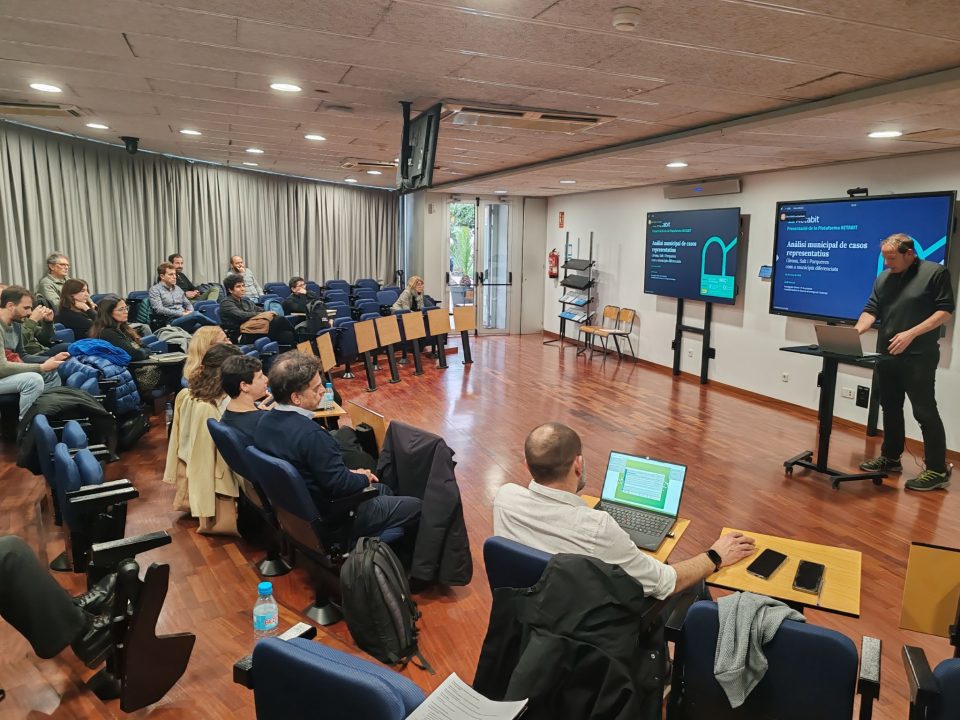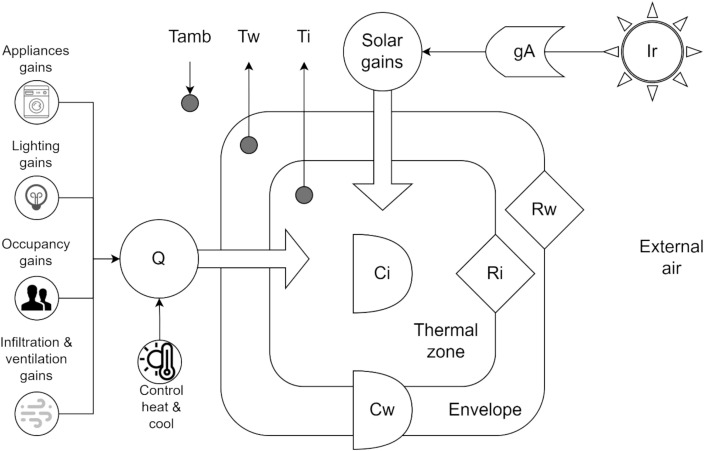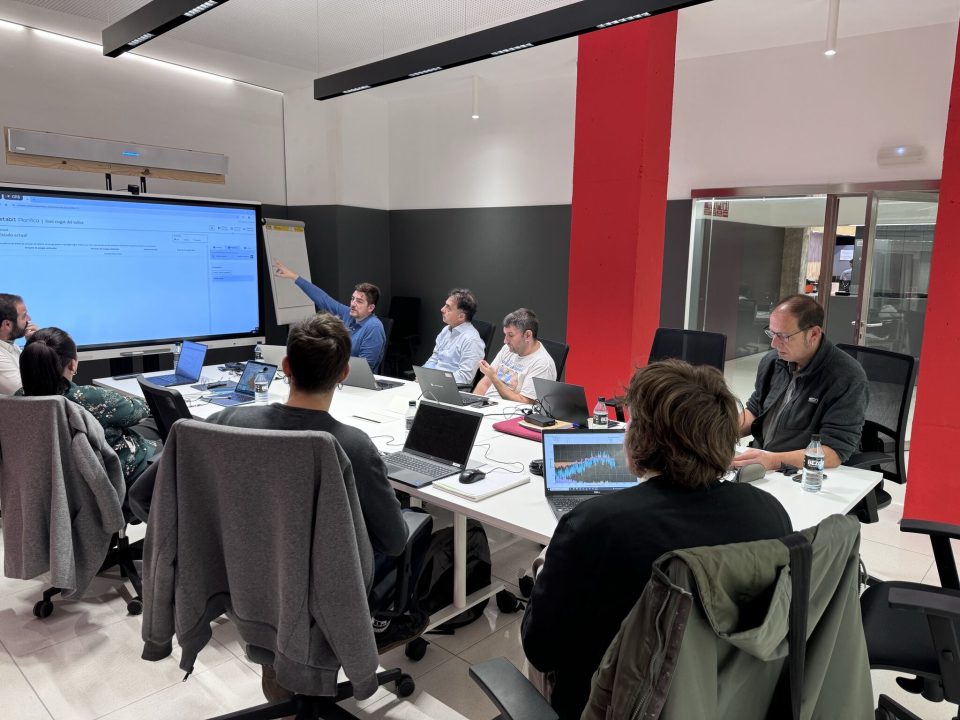RETABIT: A Platform for the Sustainable Renovation of the Residential Building Stock
After three years of development, the RETABIT project has resulted in the creation of a digital tool that facilitates the sustainable renovation of residential buildings, supporting the decarbonisation of the building stock and the sustainable development of cities.
The RETABIT plataform enables the analysis and planning of renovation projects based on integrated data such as cadastral records, energy certificates, demographics, housing costs, income levels, and access to public amenities.

The RETABIT plataform consists of two environments:
- ANALYSE: Consultation and assessment of the condition of the residential building stock at the municipal, neighborhood, or building group level.
- PLAN: Design of renovation projects and simulation of their outcomes.
What does RETABIT offer?
- Comprehensive analysis of the renovation potential of buildings, considering their impact on urban regeneration.
- Identification and prioritisation of buildings to be renovated based on environmental, economic, and social criteria.
- Simulation of the environmental, socio-economic, and urban impact of building renovation plans.
Latest news
Retabit
in a nutshell
Multi–dimensional data driven services to foster residential building retrofitting programmes in the implementation of SECAPs.
Retabit is a Research, Development and Innovation project co-funded by the Spanish Ministry of Science and Innovation and carried out by the research group ARC Engineering and Architecture La Salle (coordinator) and IREC, the Catalonia Institute for Energy Research
Sustainable Energy and Climate Action Plans (SECAPs) are a key instrument for the reduction of energy consumption in buildings and for the sustainable development of cities. Although these plans - and the SEAPs that preceded them - have been adopted by a large number of local administrations, there are some fundamental difficulties that hinder their effectiveness, including the lack of data from the multiple sectors (building, energy, economy, financing) involved in the renovation of buildings, and the lack of information systems that interrelate these data to assess the impact of the actions taken over long periods of time.
To help overcome these difficulties, RETABIT will develop a service platform that will provide the multiple actors involved in large-scale residential building renovation with the tools they need to assess the state of the building stock in an urban area and its renovation potential, to develop possible retrofitting scenarios based on multidimensional indicators, and to monitor the impact of their implementation over time.
Objectives
The main objectives of Retabit are:

INDICATORS FOR SUSTAINABLE RENOVATION

INTEGRATION OF DATA FROM MULTIPLE SCALES AND DOMAINS

Multiscale and multidimensional models

Building archetypes




